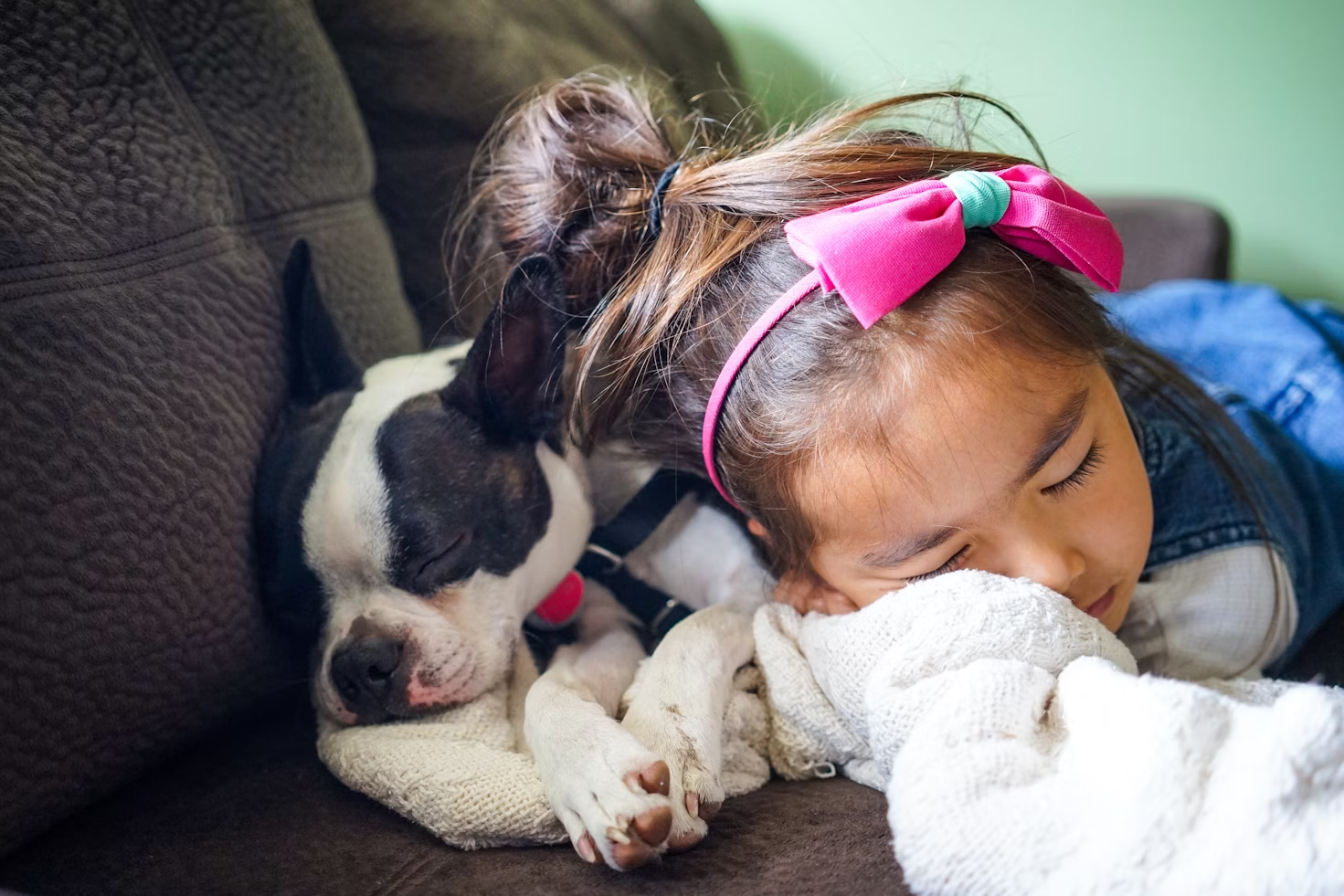
Families with pets have a different vibe when it comes to relationships. The bond between a kid and their beloved pet is unbreakable. It encourages mutual trust, empathy and unconditional love.
You’re probably wondering if getting a pet is the right thing to do. Raising a puppy or kitten with your children is a wonderful gift. It teaches them important values and responsibility.
If you’re undecided on whether to welcome a furry friend into your home, we’ll make a case for how owning a pet can teach your child valuable life lessons.
Responsibility
Children often complain about washing the dishes or cleaning up after themselves. Let them know from the onset that having a pet means they must share the responsibility.
Knowing that you’ve entrusted them to do their part gives them a sense of ownership.
Start with tasking them to be responsible for the pet’s feeding schedule. Feeding their furry companion every day at the same time teaches them about consistency and that others depend on them.
Nobody wants to clean up pet waste, but someone has to do it. Kids get squeamish at the little things. It is better to leave the dog poop and dirty work to the professionals for a thorough job.
Use a company that specializes in pet waste services and sanitization. Pet waste can harbor harmful bacteria and other nasties. For hygienic purposes, utilize pooper scooper services regularly for a clean environment. Pet waste removal services offer regular scooping, deodorizer service and sanitization services.
You can customize the service with add-ons unique to your pet’s needs. A sound, reputable company will take care of all your concerns if any arise.
Don’t think of it as a costly expense. Scoop Soldiers suggests pet owners can save money by bundling services and pricing packages.
Valued Relationships
Kids don’t often tell their parents what’s bothering them. Dogs and cats have a secret weapon. They know exactly when you’re feeling down.
A gentle nuzzle or lick on the face is their way of reminding us that their love knows no bounds. And that’s why children look to their four-legged friends to find solace and a place of safety.
Pets teach younger ones how to nurture relational bonds. This positive interaction helps children form good social skills.
Connections Academy says animals can help humans with self-soothing and coping with difficult emotions. Teens often struggle with navigating puberty and mood swings. Having a pet by their side makes things much easier.
Emotional and Physical Well-Being
Kerri Rodriguez at the University of Arizona studies human-animal connections. She notes that one of the greatest benefits of having a pet is their nonjudgmental nature.
Another equally beneficial advantage is that they strengthen the immune system. While animals aren’t responsible for our immune systems, having a dog or cat in the home can increase exposure to healthy microbes. This exposure helps train kids’ immune systems.
According to a study published in the National Library of Medicine, children who grow up with pets are 40% less likely to develop asthma. An additional 28% are less likely to develop allergies.
Empathy
Emotional intelligence in kids fosters empathy and compassion for others. Having a pet nurtures these personality traits and forces children to stop thinking about themselves and being self-serving.
Parenting expert Denise Daniels tells Rewire Me that caring for a pet draws a self-absorbed child away from themselves.
Kids also react to nonverbal cues. They’ll know when their dog or kitty is in distress by reading their facial expressions or yelps. This tells them that they need help. Responding to their pet’s needs and wants imbues kids with compassion and kindness.
All these positive emotions set the groundwork for forming healthy connections later in life. They are the building blocks for important life skills.
Confidence
Helping to care for a pet gives kids a sense of accomplishment. It makes them confident in doing the tasks they were asked to do. And unlike humans, pets don’t care if you got it wrong the first time.
Many behavioral experts agree that the best age for owning a pet is six and under. It’s an impressionable stage of a child’s life when they need psychological support and are made to feel good about themselves.
Never mind your misgivings about getting a new member of the family. A pet is your kid’s biggest cheerleader and their friend for life. If anything, that’s a good enough reason to welcome little Fido into your home.